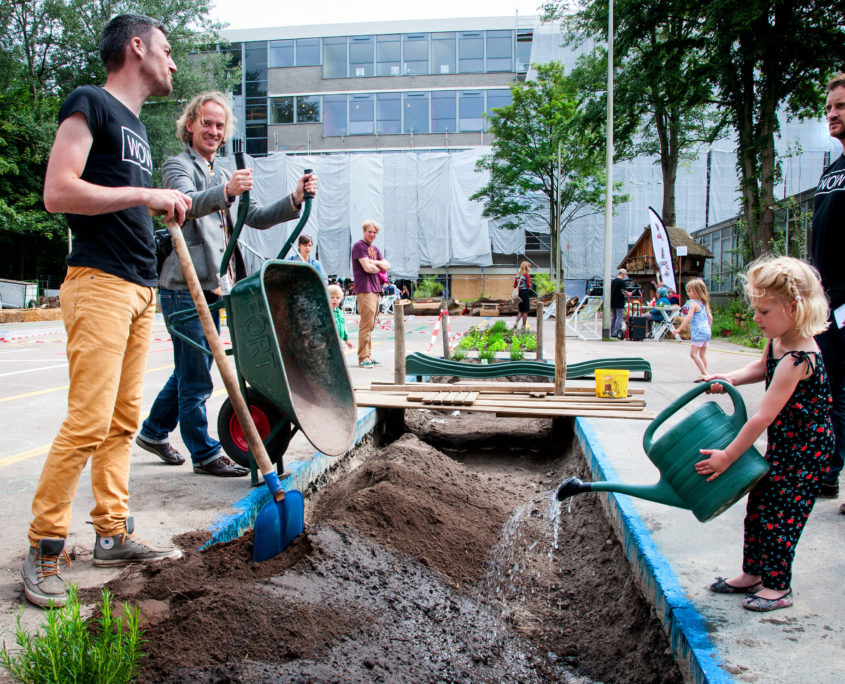Factsheets on ensuring climate adaptation in private property

Private property has a very significant role to play in dealing with our changing climate, from extreme rainfall to extended periods of heat and drought. The effects of this can clearly be seen in our cities. Fortunately, there are various policy options that municipalities and water boards can use to incorporate climate-adaption measures into their policy.
At the request of Waternet, NextGreen interviewed several experienced experts from the municipality of Amsterdam and analyzed the results. It provided an overview of nine policy instruments, and factsheets that include advice and examples. We looked at ensuring climate adaptation through the local zoning plan, rainwater regulations, the ‘Keur’ regulations, joint development ambitions, the water-neutral building envelope and parcel passport, tenders based on BPVK, the BREEAM NL New Construction and Renovation label, performance agreements with housing corporations and the sustainable sewage levies.
The result was a decision-support model which indicates the most suitable instrument based on characteristics such as ownership of the land or plot, the development phase of the built environment and the climate adaptation theme. We also looked at the extent to which instruments are regulatory or incentivizing in nature, and how far these instruments can be combined. And of course, we also looked at which other sustainability themes such as biodiversity and energy can be included.
We hope that policymakers and decision-makers can develop better climate-resilience policies based on combined experience.
- Read more about the role of NextGreen in this Waternet project:
Decision model for public-private instruments (2018-2019)
The results of this Waternet project have been published and are also available to you:
• Decision-support model to arrive at the most suitable instrument (in Dutch)
• Factsheets on instruments (in Dutch)
• Framework of experiences (in Dutch)
